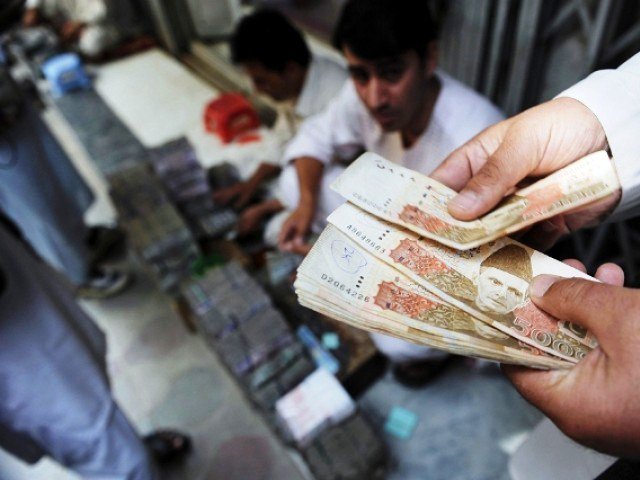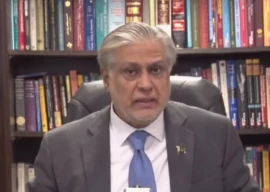
“Nations across the world including France, Germany, China and India have let their currencies depreciate against the strengthened dollar. We, however, are not allowing our rupee to adjust itself,” Tarin, who was finance minister in the Yousaf Raza Gilani-led government, said at a press conference organised by Silkbank.
“The rupee stands around 10% overvalued,” he said. The controlled rupee was badly impacting external trade. “It is hurting exports of the country and supporting unnecessary imports,” he said. Also, the artificially strong rupee was hurting the manufacturing sector of the national economy and converted the country into a trading market, he said.
Tarin believed that a natural depreciation would give 5-10% advantage to exporters and partially help control the widening current account deficit.
He added that with the depreciation, external debt would also swell. However, the debt was not the immediate challenge, but export revival was the immediate challenge to the economy. He pointed out that the dollar had strengthened over a period of time because of economic growth slowdown in China and other major economies as well as a significant drop in international crude oil prices.
“Currency is a term of trade between trading countries and it has to be adjusted time to time accordingly,” he remarked.
Tarin, who is also a senior banker, was of the opinion that the widening current account deficit would not impact the local business of banks.
“Pakistan-based banks largely remained insulated during the world financial crisis of 2008-09,” he said, pointing out that they had grown in isolation from the rest of the world.
However, according to some economists, the current account deficit is fast eating away foreign currency reserves of the central bank and may create balance of payments problem going forward.
Tarin believed that the country would be able to manage the deficit one way or the other.
Silkbank outlook
Talking about Silkbank’s performance, Tarin said his bank had turned around and was now making profits.
The bank’s consolidated profit increased 38.5% to Rs478.26 million with earnings per share (EPS) at Rs0.05 in the half year ended June 30, 2017 compared to Rs345.29 million (EPS Rs0.04) in the same period of previous year, according to profit and loss accounts of the bank sent to the Pakistan Stock Exchange.
Deposit base of the bank and the advance-to-deposit ratio have also increased significantly. “Bank’s advances reached Rs78 billion by June 30, 2017 from Rs58 billion in 2013,” he said.
Tarin revealed that the bank had also reduced its non-performing loans by Rs10 billion.
Speaking about future plans, he said Silkbank would cut the size of its corporate banking and focus more on Islamic and consumer banking, which have helped the bank perform better.
Some 50% of the branches to be opened by the bank over the next three to five years would be Islamic bank branches, he said, adding they would split their banking operation into Islamic banking and conventional banking in the future. A press statement of the bank added the bank had planned to open 35 branches this year.
Train said the bank would also launch full-fledged digital banking for the general public next year. “Digital banking is going through the testing phase these days.”
Published in The Express Tribune, September 12th, 2017.
Like Business on Facebook, follow @TribuneBiz on Twitter to stay informed and join in the conversation.

1722586547-0/Untitled-design-(73)1722586547-0-165x106.webp)


1732326457-0/prime-(1)1732326457-0-165x106.webp)

1719053250-0/BeFunky-collage-(5)1719053250-0-270x192.webp)










COMMENTS
Comments are moderated and generally will be posted if they are on-topic and not abusive.
For more information, please see our Comments FAQ